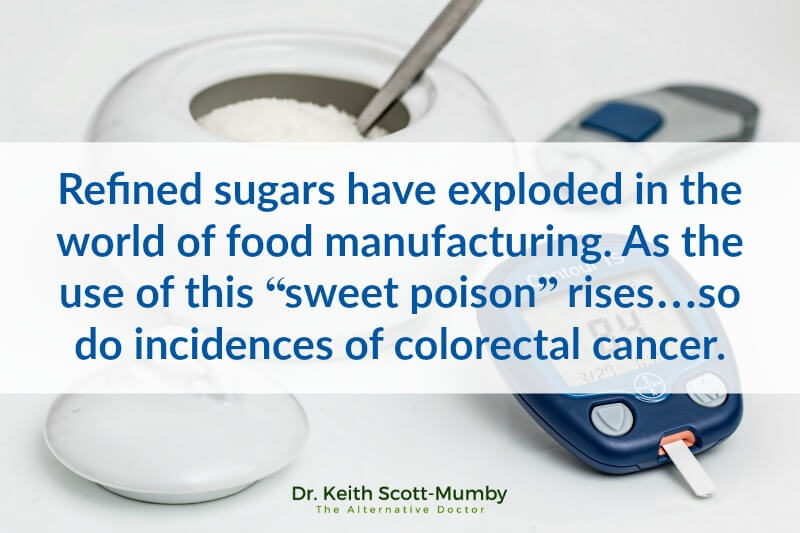Do you know your colorectal cancer risk?
Cancers that begin in the colon or rectum are often grouped together since they have much in common. These cancers begin as polyps – small growths found in these two areas of the body.
Some polyps are more dangerous than others. Adenomatous polyps are considered pre-cancerous while hyperplastic or inflammatory polyps are usually benign (but still should be removed and biopsied). The chance of these polyps turning into cancer depends on how big they are and how many there are.
Colorectal cancer is the third most common cancer diagnosed in both men and women (excluding skin cancers). In 2018, there were more than 140,000 new cases of colorectal cancer in the United States alone (1.4 million new cases globally in 2012). There are currently 1.3 million people currently living with colorectal cancer and approximately 50,000 of these patients will succumb to the disease this year.
What Causes Colorectal Cancer?
Lifetime risk of colorectal cancer in men is 1-in-22 and in women is 1-in-24 in the United States. America has the seventh highest cancer occurrence rate in the world.
The causes are traced back to the Standard American Diet (SAD) – consuming too many processed dairy products, eating too much red meat, tobacco use, and obesity to name a few. It should come as no surprise that the Western world’s carbohydrate addiction is also identified as one of the leading causes of this disease.
The imbalance in American diet of high-fat, low nutrition foods has been under fire for decades but it is now resulting in far too many deaths to ignore.
Colorectal Cancer Risk Factors
- Age: More than 90% of patients diagnosed are over age 50 though there are patients as young as 20.
- Personal History: If you’ve been diagnosed with polyps, inflammatory bowel disease (IBD), Crohn’s disease, or ulcerative colitis then your risk for colorectal cancer is much higher.
- Family History: Approximately 1 in 5 people with an immediate family member who has been diagnosed with colorectal cancer are also diagnosed with the disease.
- Diabetes: Colorectal cancer causes often mirror the causes for diabetes so similar diets and lifestyle changes are recommended.
- Diet: If you consume a diet high in red meat, low in fiber, processed foods, high fats, and high carbohydrates, then you double your risk for colorectal cancer. A diet high in fruits, vegetables, high fiber, and water will help lower your overall risk of illness and disease.
- Lack of Exercise: Making time for regular exercise reduces your overall risk for many forms of cancer, including colorectal cancer. Going for a 15-minute walk each day will lower your overall risk of cancer as well as many other diseases.
- Obesity: If you are overweight or obese, your risk is not only higher for developing colorectal disease – there is a much greater chance that you will die from it. Maintaining a healthy body weight is pivotal to total body wellness.
- Tobacco and Alcohol Abuse: As with obesity, risk for the disease and death are higher if you smoke or drink excessively. Both increase system inflammation, which is a leading factor in cancer, heart disease, and diabetes.
If you are in any of the high-risk groups above, regular screening, a nutritional diet, consistent exercise, and maintaining a healthy body weight are crucial to continued good health.

The Not-So-Sweet Side of Sugar
Refined sugars have exploded in the world of food manufacturing. High fructose corn syrup (HFCS) is one of the most commonly used additives to the over-processed food too many are consuming. As the use of this “sweet poison” rises…so do incidences of colorectal cancer.
Researchers at the University of North Carolina conducted their study using mice to determine the link between colon cancer and carbohydrates. Using mice susceptible to cancer, they discovered that a diet low in sugar and starch reduced the growth of tumors and polyps.
The Journal of the National Cancer Institute published a study from Dana-Farber Cancer Institute that confirmed the result in humans. Following more than 1,000 patients diagnosed with advanced colon cancer, they found that patients who ate high sugar, high starch diets experienced a relapse twice as often. The number is higher for patients who are overweight.
Change Isn’t Easy…But It Is Necessary
It’s hard to give up the stuff you love – particularly if you’ve spent your entire life eating like the majority of American citizens. Many manufactured foods are deliberately addictive. I’ve written about this extensively in my books and on the website. This is not a secret!
Start simply by limiting one item more and more until you can eliminate it completely (this system works well for soda consumption, snack foods, and tobacco). The step-down method is one that allows you to still enjoy something you love…but less of it over time. There may well come a day that you can do without it completely.
Lowering colorectal cancer risk (and most other major diseases as well) is worth avoiding pre-packaged, over-processed, chemical-laden foods that provide nothing of value to your body and actually rob you of your long-term wellness. Start small but stay the course!
The post Does Eating Carbs Increase Your Colorectal Cancer Risk? appeared first on Dr. Keith Scott-Mumby.
